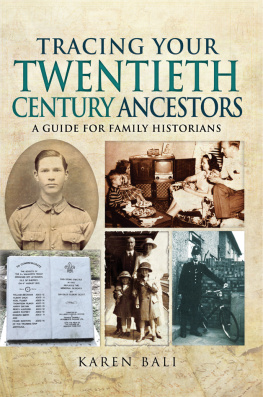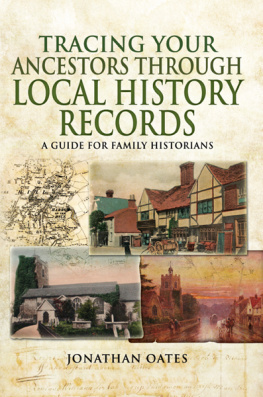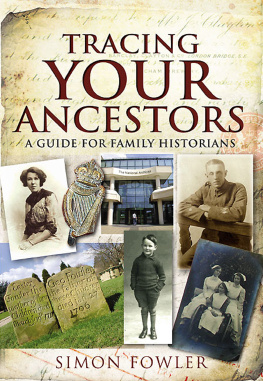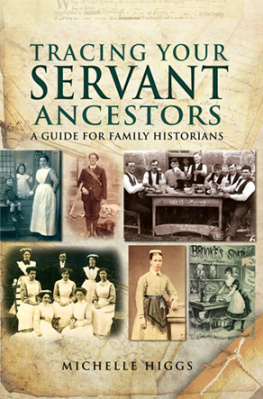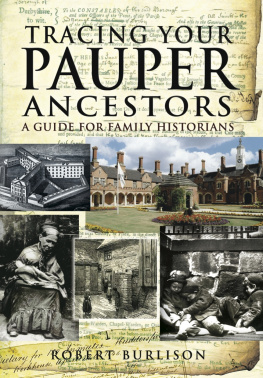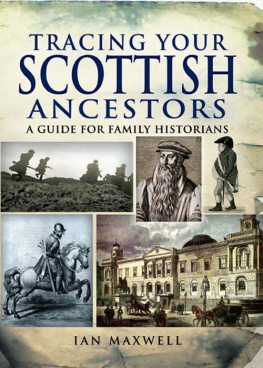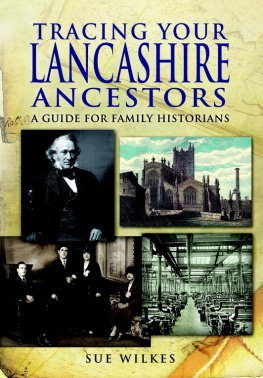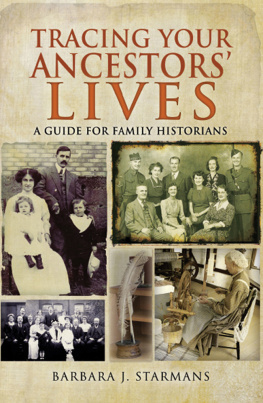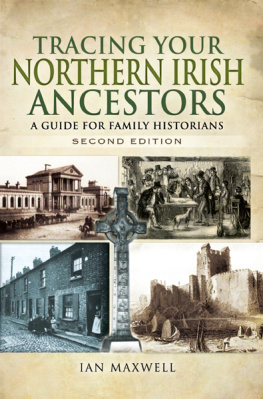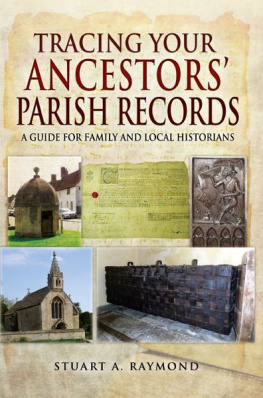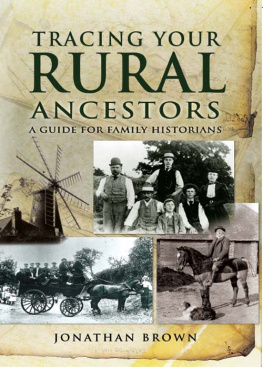
TRACING YOUR TWENTIETH-CENTURY ANCESTORS
FAMILY HISTORY FROM PEN & SWORD
Tracing Secret Service Ancestors
Tracing Your Air Force Ancestors
Tracing Your Ancestors
Tracing Your Ancestors from 1066 to 1837
Tracing Your Ancestors Through Death Records
Tracing Your Ancestors Through Family Photographs
Tracing Your Ancestors Using the Census
Tracing Your Ancestors Childhood
Tracing Your Ancestors Parish Records
Tracing Your Aristocratic Ancestors
Tracing Your Army Ancestors 2nd Edition
Tracing Your Birmingham Ancestors
Tracing Your Black Country Ancestors
Tracing Your British Indian Ancestors
Tracing Your Canal Ancestors
Tracing Your Channel Islands Ancestors
Tracing Your Coalmining Ancestors
Tracing Your Criminal Ancestors
Tracing Your East Anglian Ancestors
Tracing Your East End Ancestors
Tracing Your Edinburgh Ancestors
Tracing Your First World War Ancestors
Tracing Your Great War Ancestors: The Gallipoli Campaign
Tracing Your Great War Ancestors: The Somme
Tracing Your Great War Ancestors: Ypres
Tracing Your Huguenot Ancestors
Tracing Your Jewish Ancestors
Tracing Your Labour Movement Ancestors
Tracing Your Lancashire Ancestors
Tracing Your Leeds Ancestors
Tracing Your Legal Ancestors
Tracing Your Liverpool Ancestors
Tracing Your London Ancestors
Tracing Your Medical Ancestors
Tracing Your Merchant Navy Ancestors
Tracing Your Naval Ancestors
Tracing Your Northern Ancestors
Tracing Your Pauper Ancestors
Tracing Your Police Ancestors
Tracing Your Prisoner of War Ancestors: The First World War
Tracing Your Railway Ancestors
Tracing Your Royal Marine Ancestors
Tracing Your Rural Ancestors
Tracing Your Scottish Ancestors
Tracing Your Second World War Ancestors
Tracing Your Servant Ancestors
Tracing Your Service Women Ancestors
Tracing Your Shipbuilding Ancestors
Tracing Your Tank Ancestors
Tracing Your Textile Ancestors
Tracing Your Trade and Craftsmen Ancestors
Tracing Your Welsh Ancestors
Tracing Your West Country Ancestors
Tracing Your Yorkshire Ancestors
TRACING YOUR TWENTIETH-CENTURY ANCESTORS
A Guide for Family Historians
Karen Bali
First published in Great Britain in 2016
PEN & SWORD FAMILY HISTORY
an imprint of
Pen & Sword Books Ltd
47 Church Street,
Barnsley
South Yorkshire,
S70 2AS
Copyright Karen Bali, 2016
ISBN 978 178383 103 6
eISBN 978 147388 506 6
Mobi ISBN 978 147388 505 9
The right of Karen Bali to be identified as Author of the Work has been asserted by her in accordance with the Copyright , Designs and Patents Act 1988.
A CIP catalogue record for this book is available from the British Library.
All rights reserved. No part of this book may be reproduced or transmitted in any form or by any means , electronic or mechanical including photocopying , recording or by any information storage and retrieval system , without permission from the Publisher in writing.
Pen & Sword Books Ltd incorporates the imprints of Pen & Sword Archaeology , Atlas , Aviation , Battleground , Discovery , Family History , History , Maritime , Military , Naval , Politics , Railways , Select , Social History , Transport , True Crime , Claymore Press , Frontline Books , Leo Cooper , Praetorian Press , Remember When , Seaforth Publishing and Wharncliffe.
For a complete list of Pen & Sword titles please contact
PEN & SWORD BOOKS LTD
47 Church Street , Barnsley , South Yorkshire , S70 2AS , England
E-mail:
Website: www.pen-and-sword.co.uk
ACKNOWLEDGEMENTS
There are several people to thank who have helped to make this project possible. Friends Barbara Allen , Nicky Lockyer and Anna Seabourne , for their support and practical help , Simon Hall , for his encouragement , and Neil MacFarlane for turning things around when it seemed impossible. As always , my greatest gratitude is to Sunil , my wonderful husband of twenty-five years , to whom this book is dedicated.
Author s note : some names have been changed in the case histories to protect the privacy of the individuals featured.
* * *
Cover photographs:
Young soldier Edward A.F. Newman, c . 1914 (with thanks to Anthony Richmond)
Policeman H. George Grant, c . 1950 (with thanks to Ellen Collier)
Memorial Nunhead Cemetery Scout Memorial (with thanks to Alan Patient, www.plaquesoflondon.co.uk )
INTRODUCTION
When the subject of genealogy comes up , the focus is often on how far back someone has managed to trace their family. We may boast about ancestors deep in the past , quote dates and events from long ago and have documentary evidence with pedigree lines from 1690 , but focusing on our roots is only half the story. Yes , families have roots and history but the past is not the only dimension ; there are also branches and leaves the recent past , the present and the future.
Early on in my research career I chose to focus on modern records and tracing living relatives. To me , there is little point in knowing minute details about the lives of distant , long-dead ancestors , if you have no interest in your grandparents generation or if you have only a superficial relationship with your aunts , uncles and cousins living , breathing kin who share your heritage and DNA. It follows that it can enrich and expand our research to learn more about the lives of relatives in our living memory , the faces in our photo albums , the people who influenced and shaped our parents , and therefore us.
The obsession with getting back means that recent generations are mostly overlooked. Perhaps this is because the past that we remember , or that our parents talked about , just doesn t seem interesting or different enough from the present we live in today. To the next generation and their descendants , however , your recent past is their history , one that may absorb and fascinate them as much as the lives of distant ancestors do for so many of us today. Researching and recording your twentieth-century ancestors can be your eternal legacy to them.
Before you Start
If your mission is to work backwards as far into the distant past as possible , you might probably start with the earliest known records about your ancestors and take it from there. If you want to examine the recent past , however , the methodology is a little different.
Firstly , I suggest that you gather all of the documents that you have relating to your family , even ones that you have looked at before , if you think you know everything that s on them or you don t think there will be any information that will help you. Take your birth certificate , for example. Note not just your name and where you were born but items like who registered your birth (most likely one of your parents) , the address where they lived (is it a house that you know?) , and the occupation of your father. Examine birth , marriage and death certificates , wills , diaries and family bibles in detail , again noting all the information that you know , didn t know or thought you knew. Next , move on to your photograph album , writing names , dates , places and events on the back. (It is helpful to write the details on a label first , before sticking it to the back of the photo , so as not to damage the picture.) Apart from checking and discovering information , you re filling in gaps and recording things that you might know now but might not be able to recall in a couple of decades.
Next page
